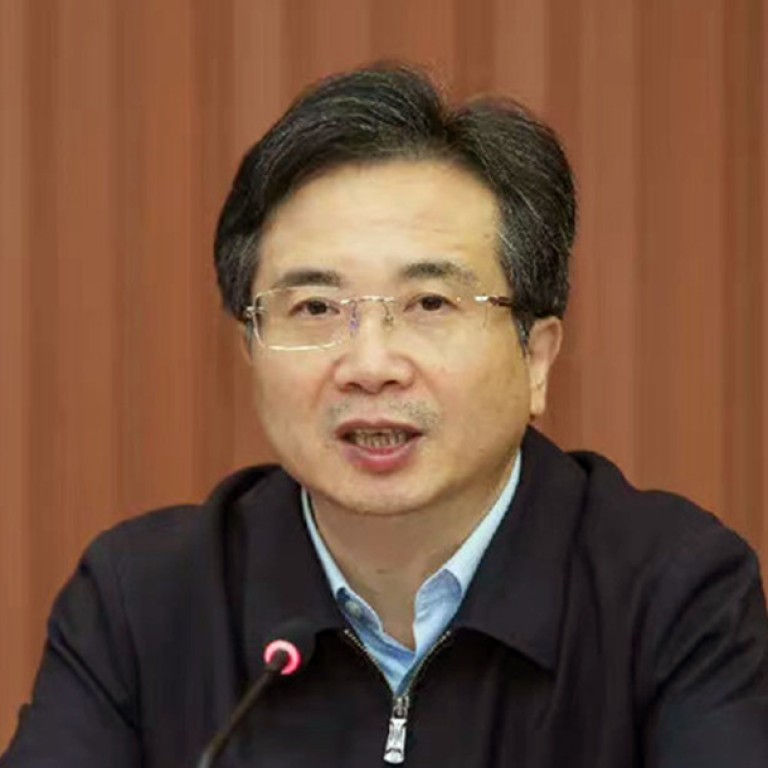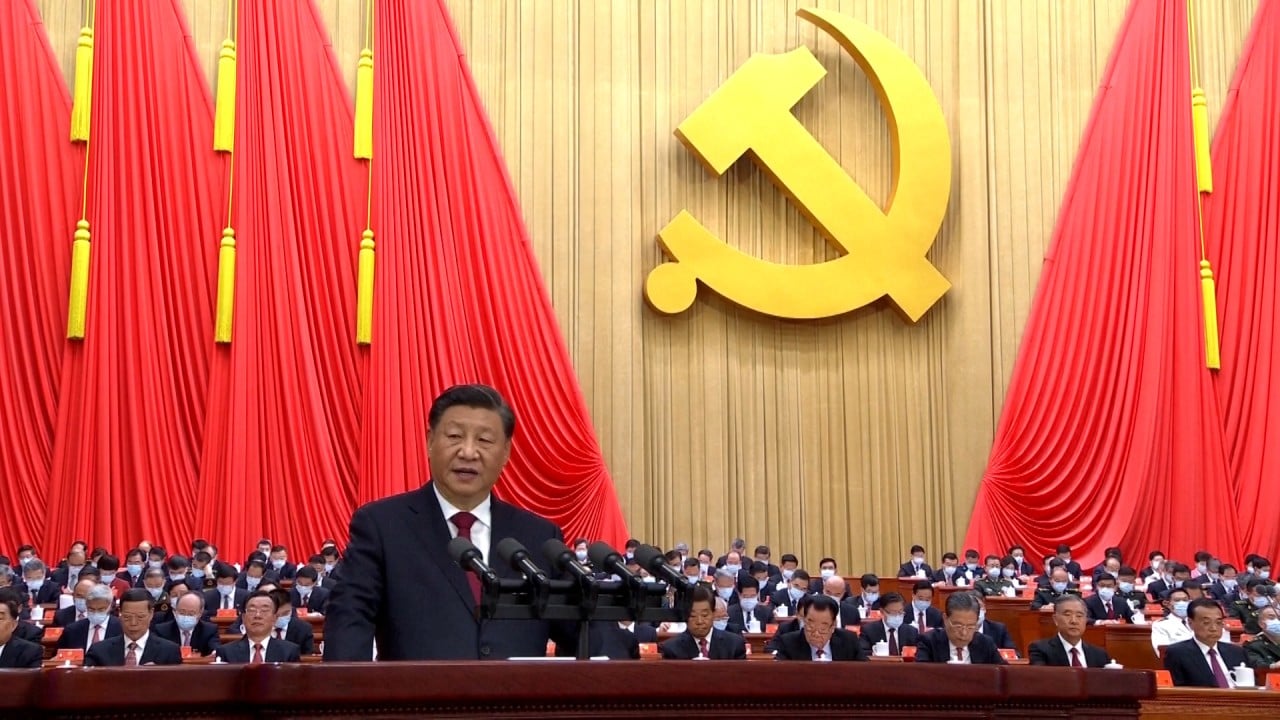
Zero tolerance for corrupt Communist Party cadres with business links, Xi Jinping warns
- On the verge of a third five-year term, Xi signals renewed focus on top party officials who become ‘agents of interest groups’
- President’s pledge is a message to the rank and file, analyst says
“[We must] resolutely put a stop to collusion between cadres in leading positions who become the spokespersons or agents of interest groups and powerful cliques.
“[We will] take resolute action to address the political and environmental damage caused by collusion between politics and business.
“[We will] show absolutely no mercy for these people.”
Xi made the comments at the start of the party congress, a twice-in-a-decade event, that is expected to elect a new Central Committee, the Communist Party’s top policymaking body, and endorse a norm-breaking third term for Xi as the general secretary.
The cases of corruption in the top ranks of the party are legion.
According to a report by state news agency Xinhua, 54-year-old Zhou was accused of taking advantage of his position by taking huge bribes from dozens of businesses for almost two decades.
Zhang was arrested in May and charged by the Supreme People’s Procuratorate in September, accused of taking bribes to grant government contracts to businesses and promote officials.
He was also accused of “fabricating economic figures for personal promotion and meddling in market activities in violation of relevant rules”.
The party’s anti-corruption watchdog, the Central Commission for Discipline Inspection (CCDI), announced early this month that Tian was being investigated over a series of allegations, including using “investment” and “financial management” as an excuse to illicit illegal gains.
He was also accused of trying to hide about 30 million yuan (US$4.1 million) in deposits in overseas bank accounts.
A month later, Wang Bin, former chairman of China Life Insurance (Group) and a 30-year veteran of the finance sector, was charged with accepting bribes and hiding overseas bank deposits.
According to the CCDI, Wang was also accused of flouting the party’s instructions to resolve financial risks.
“He has created and magnified financial risks and engaged in corrupt activities [in the financial sector],” the commission said in a statement.
Wang was also accused of helping his relatives to receive funds and projects. His brother Wang Qiang was an executive of China Huarong Asset Management, one of the country’s biggest state-owned financial asset management companies.
Lai Xiaomin, Huarong’s former chairman, was executed in January last year for taking almost 1.8 billion yuan (US$250 million) in bribes.
Alfred Wu, associate professor at the Lee Kuan Yew School of Public Policy at the National University of Singapore, said collusion between senior-ranking cadres and business was a chronic and deep-seated problem in China and Xi would continue the anti-corruption campaign to show the rank and file that he was committed to root it out.
“[Fighting corruption] is one of his signature policies. So he will continue [the campaign] in order to show that he meant what he said in fighting corruption as he begins his third term as general secretary,” Wu said.
He added that by pressing ahead, Xi also wanted to strike fear into the minds and hearts of the cadres, and instil loyalty among them.
Additional reporting by Wendy Wu


